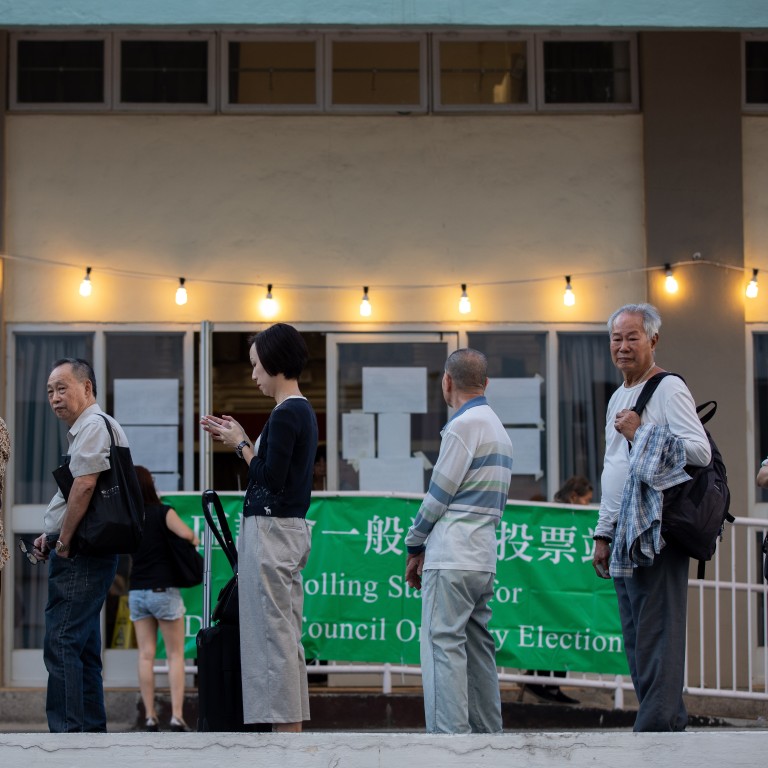
Chinese state media slow to react to Hong Kong’s district council election upset
- Xinhua waits hours to issue brief report while online commenter accuses city of resorting to extremes
- But other observers say the result was to be expected
Without saying the outcome, state news agency Xinhua waited until Monday afternoon to release a two-paragraph news report on the polls, stating only that the elections took place and “18 districts produced results”.
Nationalist tabloid Global Times reported on Monday morning that the pan-democrats won with 57 per cent of the overall vote, while People’s Daily published an English-language video on Twitter about the alleged history of US intervention in foreign elections.
The election came after more than five months of protests sparked by a now withdrawn extradition bill.
In addition to accusing foreign powers of backing the protests, state media, including Global Times, repeatedly claimed that a “silent majority” in Hong Kong would condemn the demonstrations.
“There are Western powers and radical Hong Kong forces who want to make this vote into a political demonstration, who deny that stopping the violence is Hong Kong’s most pressing concern at the moment,” Global Times editor-in-chief Hu Xijin wrote on microblogging site Weibo on Monday morning.
“But we say that just because the pan-democrats won more seats this time does not suggest the Hong Kong electorate supports violence.”
Pro-Beijing camp’s landslide loss in district council elections ‘a chance for reflection’ on Hong Kong
Meanwhile on mainland Chinese social media, several commenters criticised Hong Kong’s electoral system.
Popular nationalist blogger “Xuji Observations” said the city was resorting to extremes.
“Because this is a political carnival nurtured from grass-roots populism and radical localism, they have made anti-mainland sentiment the foundation of their cohesive power. When a place loses its forward momentum, it will normally choose these kinds of extremists,” the blogger said.
But some public intellectuals said the result was to be expected.
“It is logical – if it wasn’t the balance of public opinion that led to this catastrophic defeat [for the pro-establishment camp], this situation wouldn’t have carried on like this for the past few months,” Nanjing University English professor Dan Hansong wrote under the pen name of blogger Luo Zhiqiu.
“To take off one’s veil and see reality is always stronger than wishing all along for a silent majority to exist in the middle.”
“Even nasty parliamentary fights are better than bloodshed on the street. Expressing your opinions through voting is better than shaking your fist at someone with different views,” Li wrote on Weibo.

